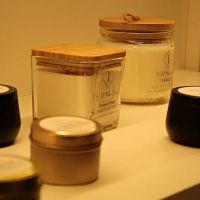Are Scented Candles Harmful to Pets?
- What Are Scented Candles?
- How Scented Candles Can Affect Pets
- Which Ingredients in Scented Candles Are Harmful to Pets?
- Safety Tips for Using Scented Candles with Pets
- Alternatives to Scented Candles for Pet Owners
What Are Scented Candles?
Scented candles are a popular household item known for their ability to enhance the ambiance of a space with pleasant aromas. These candles come in various fragrances, such as lavender, vanilla, and eucalyptus, and are used to create a relaxing environment, eliminate odors, or set a particular mood. The wax used in scented candles is typically made from paraffin, soy, or beeswax, and the scent is infused through essential oils or synthetic fragrances. While they provide a cozy atmosphere for humans, pet owners often wonder whether scented candles are safe for their furry companions.
How Scented Candles Can Affect Pets
Scented candles can have various effects on pets, particularly if the pet has respiratory issues, allergies, or a sensitivity to certain fragrances. While some candles may be non-toxic and safe for pets, others can release harmful chemicals when burned, which may pose a risk to animals. The impact depends on the ingredients used in the candle and the size and health of your pet. Pets such as dogs and cats, with their sensitive respiratory systems, can be more susceptible to the fumes and toxins emitted by certain scented candles. These effects can vary depending on the pet’s age, breed, and pre-existing health conditions.
For instance, the strong fragrances found in candles may irritate a pet’s airways, causing coughing, sneezing, or difficulty breathing. Prolonged exposure can even lead to more serious health issues, especially in pets with pre-existing conditions like asthma or bronchitis. Therefore, it's important for pet owners to consider the safety of the products they use around their pets, including scented candles.
id="which-ingredients-in-scented-candles-are-harmful">Which Ingredients in Scented Candles Are Harmful to Pets?
Not all scented candles are harmful to pets, but many candles contain ingredients that can be toxic. Some of the most common harmful substances found in candles include:
- Paraffin Wax: Paraffin wax, a byproduct of petroleum, is one of the most common materials used in candles. When burned, it can release harmful toxins such as benzene and toluene, which can negatively affect both humans and pets.
- Lead Wicks: While rare today, some older candles contain wicks with lead cores. When these candles are burned, the lead can be released into the air, posing serious health risks to pets, particularly those with respiratory conditions.
- Synthetic Fragrances: Many scented candles use synthetic fragrances to produce appealing smells. These artificial scents often contain chemicals such as phthalates, which can be toxic to pets when inhaled.
- Essential Oils: Although natural, certain essential oils used in candles, such as tea tree oil, cinnamon, and citrus oils, can be toxic to pets, especially cats. These oils can cause vomiting, diarrhea, or even organ failure if ingested or absorbed through the skin.
When choosing scented candles for your home, it’s essential to be mindful of the ingredients used in the candle’s construction and fragrance. Opting for non-toxic and pet-safe alternatives is key to minimizing the risks to your pets.
Safety Tips for Using Scented Candles with Pets
If you love scented candles and want to continue using them in your home while keeping your pets safe, here are some tips to follow:
- Choose Pet-Safe Candles: Look for candles made with natural, non-toxic ingredients like soy or beeswax. Avoid candles with lead wicks or synthetic fragrances. Some companies even offer candles labeled as "pet-safe," which are formulated with non-toxic ingredients that are safer for your pets.
- Ventilate the Room: Make sure the room is well-ventilated when burning scented candles, as this helps dissipate any fumes or chemicals that may be harmful to pets.
- Keep Candles Out of Reach: Always place candles in areas where your pets cannot knock them over or access them. Open flames present a fire hazard, and pets may try to sniff or play with the candles.
- Monitor Your Pet's Behavior: If you notice any signs of distress in your pet, such as coughing, sneezing, or lethargy, extinguish the candle immediately and remove your pet from the room. Consult your veterinarian if symptoms persist.
By following these safety tips, you can enjoy the ambiance of scented candles without putting your pets at risk. However, it's always best to remain cautious and prioritize your pet's health and well-being.
Alternatives to Scented Candles for Pet Owners
If you're concerned about the safety of scented candles but still want to make your home smell pleasant, there are several alternatives to consider:
- Essential Oil Diffusers: Unlike candles, essential oil diffusers use a cold-air method to disperse scents, avoiding the release of harmful toxins. However, be sure to choose pet-safe essential oils and avoid using those that are toxic to pets, such as eucalyptus, tea tree, and citrus oils.
- Pet-Safe Air Fresheners: Look for air fresheners specifically designed to be safe for pets. These products are often made with natural ingredients and are free from synthetic chemicals that could harm your pets.
- Baking Soda: For a natural, non-toxic option, try placing bowls of baking soda around the house to neutralize odors. Baking soda is safe for pets and helps maintain a fresh-smelling environment without the need for candles.
By choosing these pet-friendly alternatives, you can ensure that your home smells great while keeping your pets safe from potentially harmful chemicals.



0 comments